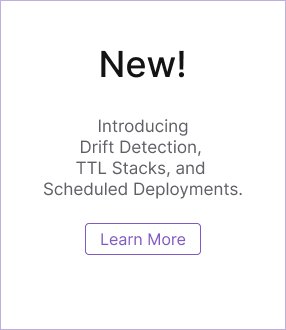pulumi env
Manage environments
Synopsis
Manage environments
An environment is a named collection of possibly-secret, possibly-dynamic data. Each environment has a definition and may be opened in order to access its contents. Opening an environment may involve generating new dynamic data.
To begin working with environments, run the env init command:
env init
This will prompt you to create a new environment to hold secrets and configuration.
For more information, please visit the project page: https://www.pulumi.com/docs/esc
Options
--env string The name of the environment to operate on.
-h, --help help for env
Options inherited from parent commands
--color string Colorize output. Choices are: always, never, raw, auto (default "auto")
-C, --cwd string Run pulumi as if it had been started in another directory
--disable-integrity-checking Disable integrity checking of checkpoint files
-e, --emoji Enable emojis in the output
-Q, --fully-qualify-stack-names Show fully-qualified stack names
--logflow Flow log settings to child processes (like plugins)
--logtostderr Log to stderr instead of to files
--memprofilerate int Enable more precise (and expensive) memory allocation profiles by setting runtime.MemProfileRate
--non-interactive Disable interactive mode for all commands
--profiling string Emit CPU and memory profiles and an execution trace to '[filename].[pid].{cpu,mem,trace}', respectively
--tracing file: Emit tracing to the specified endpoint. Use the file: scheme to write tracing data to a local file
-v, --verbose int Enable verbose logging (e.g., v=3); anything >3 is very verbose
SEE ALSO
- pulumi - Pulumi command line
- pulumi env edit - Edit an environment definition
- pulumi env get - Get a value within an environment.
- pulumi env init - Create an empty environment with the given name.
- pulumi env ls - List environments.
- pulumi env open - Open the environment with the given name.
- pulumi env rm - Remove an environment or a value from an environment.
- pulumi env run - Open the environment with the given name and run a command.
- pulumi env set - Set a value within an environment.
Auto generated by spf13/cobra on 26-Apr-2024
Thank you for your feedback!
If you have a question about how to use Pulumi, reach out in Community Slack.
Open an issue on GitHub to report a problem or suggest an improvement.
